Saints OC Pete Carmichael is one of the best
By: Brady Atkins
NFL offensive coordinators, the creative, innovative, truly talented NFL offensive coordinators– are about as rare a commodity as you’ll find in professional sports.
The art of offense is a challenging task to master, and those who don’t more often than not suffer the consequences for it. Only one of the NFL’s eventual Super Bowl champions since the 2008 season has brought home the Lombardi with a scoring offense ranked below the top ten– the 2015 Denver Broncos, who thrived on the power of an elite defense that ranked first in yards allowed that season.
The new meta around the league boils down simply to this; a good offense makes for a great team. Which might be why, year after year, the NFL sees teams racing to hire up-and-coming offensive coordinators like travelers flooding the streets of California for precious metals during the Gold Rush.
Like a college basketball superstar, one-and-done offensive play-callers are becoming less of an exception and more of an expectation as the years progress. Rams’ Head Coach Sean McVay arguably set the trend, being promoted to his current role after just three seasons as the offensive coordinator for the Washington Football Team, but many more have followed in his path. Kyle Shanahan became the 49ers’ Head Coach after two seasons as the Falcons’ play-caller, Packers’ Head Coach Matt LaFleur was given the Packers’ Head Coaching job after just one year as a play-caller, and Zac Taylor, the Bengals’ current Head Coach, skipped the offensive coordinating at his previous stop altogether, being hired from the Rams after serving as their one-season quarterback’s coach.
This, along with myriad other factors, could be the reason why NFL offenses have struggled through the years to maintain their offensive dominance. Among the league’s top ten scoring offenses in 2020, only six were ranked in the top ten the year before. Pushing back one more year, the list once again shrinks from six to three.
In just five seasons’ time, only one team in the NFL is left standing as a consistent top-ten scoring offense. No other franchise but the New Orleans Saints have been able to be among the ten best scoring teams over a five-year stretch. But their streak of brilliance dates back further than just 2016.
Eighth in 2015, ninth in 2014, tenth in 2014, the beat marches on and on all the way to the 2010 season, when the Saints finished just shy of another top-ten year at 11th– four total points behind the tenth place offense.
This isn’t a fluke. The New Orleans stretch of offensive mastery and consistency, one that outpaces the Andy Reid Chiefs and the Sean McVay Rams by multiple seasons, has been among the league’s best for over a decade because of the talent on the field, and in contrast to the league’s shortage of talented offensive coordinators, the talent on the sideline, as well.
His name isn’t quick to come up on the list of best offensive coordinators in the NFL. He’s not often mentioned in the same breath as Buffalo’s Brian Daboll or Carolina’s Joe Brady– but Pete Carmichael, the New Orleans Saints offensive coordinator, has overseen unrivaled, established success from the time his 12-year run for the NFC South powerhouse began.
Carmichael is something of a rarity– the coordinator of an elite offense who hasn’t yet got shot at a head coaching job. He is, it might be safe to say, the NFL’s unknown offensive genius.
Extremely efficient and incredibly explosive
At age 49, going on 50 by the early weeks of the 2021 season, Carmichael will be far too old to be called a prodigy, at least in the same way that McVay and Brady are talked about. But the New Orleans offense has been steamrolling defenses from the moment Carmichael arrived– beyond the level of those aforementioned prodigies.
In the same way that Carmichael’s Saints’ have been a regularly dominant scoring force– they have been unrivaled in their ability to move the ball as well. Through the 12-year sample size of Carmichael’s coordinating career, New Orleans has ranked first overall in yards per game four times– exactly as many times as they’ve missed out on ranking in the top five. Only once in that 12-year span has New Orleans missed out on the top ten entirely.
Between the scoring and ball movement, the New Orleans Saints haven’t had a below league- average offense in well over a decade. Even well-established offensive powerhouses, teams like the Andy Reid Chiefs and the Lafluer/Rodgers Packers have had dips in production. In Reid’s coaching tenure in Kansas City, he has overseen offenses that have ranked as low as 27th in points per game and 28th in yards per game, doing so with a sample size four years smaller than Carmichael’s Saints.
For the Packers, the pinnacle of a dominant force in 2020, the script was a bit different in 2019, hitting around league average marks in scoring and ball movement. In comparison, the Saints’ plateaus in both categories are minuscule, with their lowest ranking in points per game since 2009 being 11th.
That road to consistency hasn’t looked the same each season, either. Rather, New Orleans has trotted out the decade’s best offense that seems to evolve as the years progress. The staples of the early Carmichael offenses were a bit ahead of their time, with a pass-heavy approach from 2010 to 2016 that led to the Saints finishing top five in the NFL in pass attempts seven times, with five of those seasons seeing New Orleans place among the five best teams in yards per pass attempt.
And while the success in the passing game has never entirely disappeared from the Saints’ offensive attack, the reliance on it has shifted into a more balanced approach. With the rest of the NFL now adopting strategies to those of the early New Orleans offenses, with an emphasis placed on the passing game, the Saints have been running with much more frequency since 2018– and doing it well, too.
The Saints, the NFL’s fifth-most volume heavy rushing attack in 2020, had the production to back it up. Finishing sixth in the league in rushing yards, tenth in yards per carry and first in rushing touchdowns, ahead of true run-first teams like the Titans and Ravens.
Though the way they got there has shifted over time, beginning on the shoulders of the legendary, recently retired quarterback Drew Brees, and eventually moving to the legs of a legend in the making running back in Alvin Kamara, the New Orleans Saints offense under Carmichael has been time in and time again, among the NFL’s best.
And while Carmichael has had the benefit of a future Hall-of-Famer under center for the duration of his coordinating tenure, as well as league record-holders at key skill positions, the way he has continued to bring out the best in his key contributors, and has managed to thrive without them, has been possibly the greatest success of Carmichael’s tenure.
Life is a Brees
For as long as Drew Brees had been a starting NFL quarterback, Carmichael had been by his side.
Brees first got his shot to start in the league in 2002 with the San Diego Chargers. That same year, Carmichael had made the move from Washington to help Brees and the Chargers offense as an offensive assistant– a title he held for four years before both he, and Brees, made the move to New Orleans.
For Carmichael, that move also came with a promotion from offensive assistant to quarterbacks coach. With the Chargers, Brees had played at the level of a quality starter– but took an immediate leap in his first year with the Saints, with Carmichael now more involved in the quarterback’s development than ever.
That year went down as Brees’ only as a First-Team All-Pro, with the quarterback leading the Saints to a 10-6 record while finishing as the league’s leader in passing yards. Carmichael and Brees would continue to have success in that relationship, but the quarterback would make yet another leap forward in 2009– when Carmichael earned his promotion to offensive coordinator.
Not only did 2009 come with a Saints Super Bowl win, but it also produced a career year for Brees, one that netted him a Pro Bowl invite after leading the league in completion percentage, touchdown throws, passer rating and quarterback rating.
From a promising young starter to an All-Pro in his prime to a Super Bowl-winning, Hall of Fame-bound quarterback, Carmichael’s promotions through the years have seemed to gone hand in hand with Brees’ growth as a player. But having one of the greatest to ever play quarterback running the offense– things are often made easier. So what is Carmichael’s success rate without the Canton-bound signal-caller?
It’s pretty good, actually.
In recent seasons, as Brees continued to age out of his prime and into a more fragile physical form, injuries kept him confined to the sidelines for stretches of 2019 and 2020. But if you were only looking at wins and losses, you wouldn’t know the difference. Needing five starts from Teddy Bridgewater in 2019, and four from Taysom Hill the following year, New Orleans combined for eight wins to just one loss.
But the truly impressive thing about those wins was that, more often than not, the Saints were winning in part because of their offense– rather than in spite of it. Without Brees under center, Carmichael’s Saints adapted and evolved to fit the needs of their limited backup quarterbacks.
For Hill in 2020, that evolution involved a high volume of quarterback runs, carrying for 209 yards on 39 carries in those four starts for a 5.36 yard per carry average. The passing game opened up for Hill in his run as starter as well, however. Having only attempted 13 passes in his NFL career prior to 2020 and completing less than 50% of them, Hill completed nearly 72% of his 114 passing attempts, also adding four touchdowns through the air in addition to the four he earned on the ground.
It was a similar narrative for Bridgewater in 2019. A player with a career completion percentage below 65% and a touchdown to interception ratio of 29 to 23 prior to his stretch of starts in 2019, Bridgewater morphed into a viable starter capable of carrying New Orleans to a 5-0 record. His 67.9% completion percentage was a career-best at the time, while his touchdown percentage of 4.6%, his interception percentage of 1.0%, and his passer rating of 99.1 still stand as all-time highs for the quarterback.
All of this from Teddy Bridgewater, a former first-round pick who had not started a meaningful game since the 2015 season.
That’s the true beauty of the Saints’ offense. It can take Hall of Fame quarterbacks like Drew Brees and make them all-time greats. It can take players lost in the weeds like Bridgewater and Hill and turn them into reliable, exciting starters.
It can take a player like Michael Thomas and give him an NFL record for most catches in a season. It can take a player like Alvin Kamara and put him in the history books with a six-touchdown rushing performance.
It can do whatever it needs to, with whatever pieces they have at hand, to be elite on a regular basis.
Second Fiddle
Of course, there is a piece to this that has gone unmentioned.
Sean Payton— the New Orleans Saints’ Head Coach, and their primary offensive play-caller.
Payton, a Coach of the Year winner in 2006, cannot be neglected from the discussion. He has been, after all, the main overseer of the New Orleans offense since the time Carmichael arrived.
But two truths can exist at the same time. Is Sean Payton an excellent head coach? Yes. Is Pete Carmichael an excellent offensive coordinator, one worthy of just as much praise as Payton? 100% yes.
The duties of an offensive coordinator on an NFL team stretch far beyond that of calling plays on game day. Responsible for coaching up players, helping set up the game flow and general schemes of the offense, Carmichael has had plenty on his plate with the Saints– even without the added burden of calling plays. And he’s excelled at all of it. Teams do not get the level of sustained success that New Orleans has reached without the help of an entire staff.
And not for nothing, but Carmichael actually has called plays a few times in his past with the Saints. In the 2016 season, Carmichael was actually handed the responsibility of calling plays for the majority of the year. And while the team struggled as a whole to a 7-9 finish, the Carmichael offense was holding up their end of the bargain.
Payton reclaimed play-calling duties in Week 12, but under 11 weeks of Carmichael, New Orleans lit up the scoreboard and moved the ball at will. Twice in those 11 weeks, the Saints managed to score over 40 points– adding three more games in the 30s, while only two times did they finish with fewer than 350 total yards. The Saints would go on to finish that season ranked second in points per game with 29.3.
Carmichael has yet to see an entire season’s worth of reps as a play-caller, but in the time he has had behind the wheel, he helped the Saints thrive. This coming before the arrival of Alvin Kamara, and before the ascension of Michael Thomas, who was a rookie at the time.
Pete Carmichael has been at this game for a while. He’s seen losing seasons and Super Bowl wins in his 12-year coordinator career. But not once has he seen a bad New Orleans offense, or even a below-average one.
All Carmichael has done in his career is lurk in the shadows, secretly operating the league’s most consistent threat over the last decade.




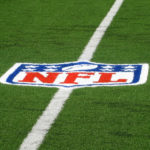









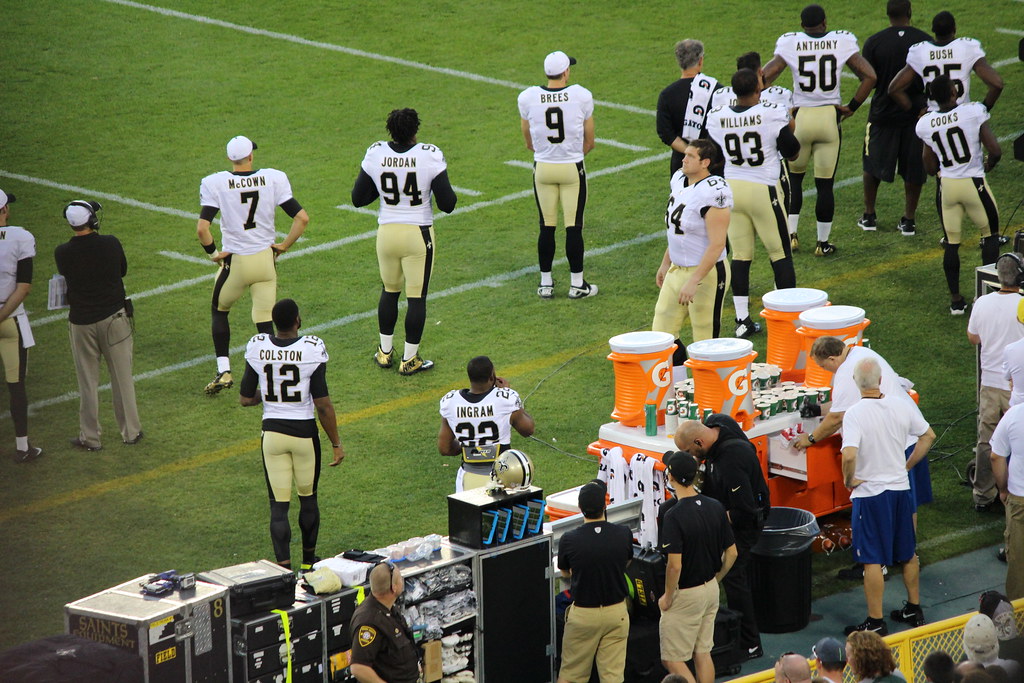



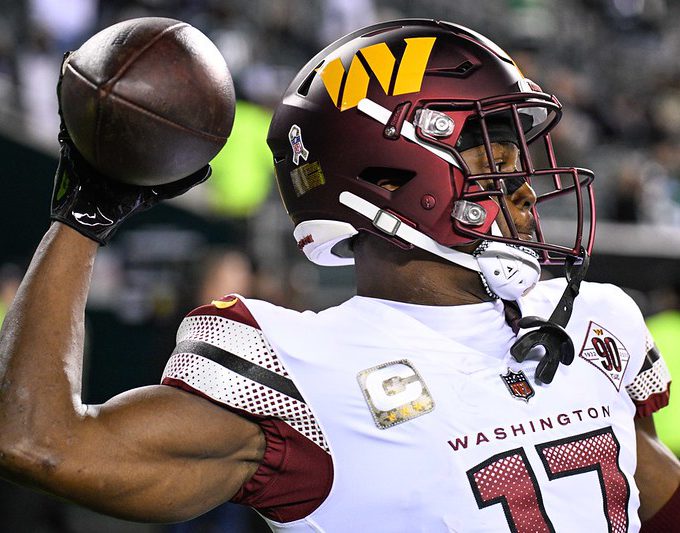
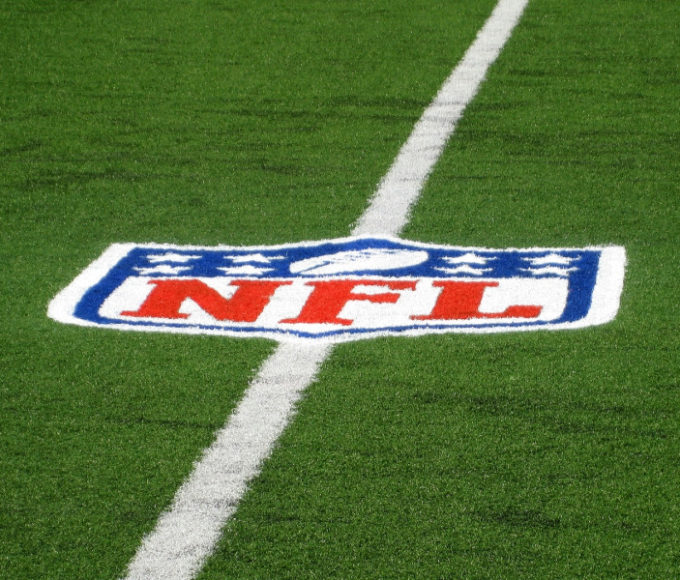
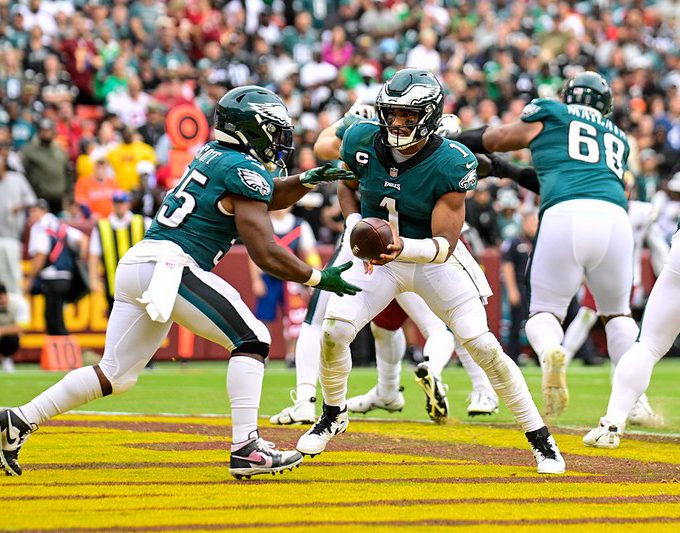
Leave a comment